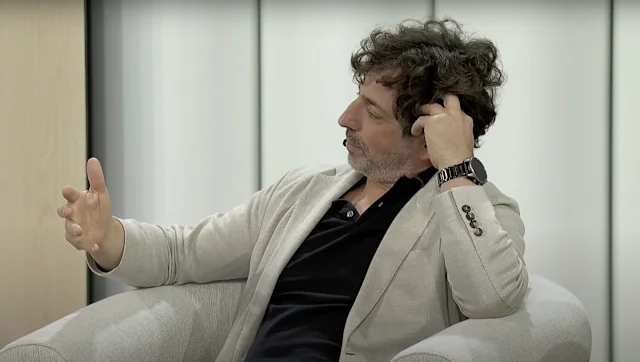
Sergey Brin Declares Google’s AGI Ambitions at I/O: Can Gemini Win the Race?
At Google I/O this year, amidst the buzz of new product demos, Sergey Brin, Google's co-founder, made a surprise appearance, boldly announcing Google's intention to build the first Artificial General Intelligence (AGI). This declaration signals a major shift in the AGI race, traditionally dominated by competitors like OpenAI and Elon Musk.

Brin stated, “We fully intend that Gemini will be the very first AGI,” during a conversation with Demis Hassabis, CEO of DeepMind, hosted by Alex Kantrowitz. This marks the first time Google has explicitly stated its intent to win the AGI race, a move that challenges OpenAI's perceived lead.
However, a nuanced contrast emerged between Brin's ambition and Hassabis's caution. While Brin sees AGI as an imminent milestone, Hassabis emphasized the need for clarity, restraint, and scientific precision. According to Hassabis, True AGI would require a system capable of doing the range of things even the best humans in history were able to do with the same brain architecture. “It’s not one brain but the same brain architecture. So what Einstein did, what Mozart was able to do, what Marie Curie and so on.”
The tension between Brin's competitive fervor and Hassabis's scientific rigor could define Google's future in the AI landscape. When asked whether AGI would arrive before or after 2030, Brin confidently answered “Before,” while Hassabis countered with “Just after.” This exchange encapsulates the differing approaches Google is taking, balancing innovation with careful consideration.
Beyond the AGI declaration, Google also unveiled updates on its smart glasses project, powered by Android XR and Gemini AI. Brin admitted to past mistakes with Google Glass, citing a “technology gap” and a lack of understanding of supply chains. He added, “I definitely feel like I made a lot of mistakes with Google Glass.” Now, with advanced AI, Alphabet is reviving the idea of smart glasses. Google also announced partnerships with Warby Parker, Samsung, Qualcomm, Sony, Xreal and Magic Leap.

Brin emphasized the importance of algorithmic breakthroughs over sheer computational scale, echoing Google's focus on innovations like the AlphaEvolve system, which uses AI to improve AI algorithms. He noted algorithmic advances have beaten out the computational advances, even with Moore’s law. This emphasis on algorithmic innovation aligns with Google’s vision for AI heavily incorporates cameras and visual processing.
Both Brin and Hassabis acknowledged the risks associated with rapid AI development, particularly concerning generative capabilities and the potential for “model collapse.” Hassabis outlined Google's approach to responsible development, including the use of SynthID, an invisible AI-made watermark, to identify AI-generated content.
Brin’s declaration marks a significant shift, pitting Google against OpenAI and Meta. While OpenAI has built its entire narrative around AGI, and Meta emphasizes open research, Google is positioning itself with a blend of scientific rigor and competitive drive. The success of Google's AGI push hinges on balancing these distinct approaches.
Will Gemini truly be the first AGI? Google's bold declaration has undoubtedly intensified the AGI race, pressuring competitors to accelerate their timelines while navigating the complexities of responsible AI development.
What are your thoughts on Google's AGI ambitions? Do you think Gemini has what it takes to lead the way? Share your opinions in the comments below!